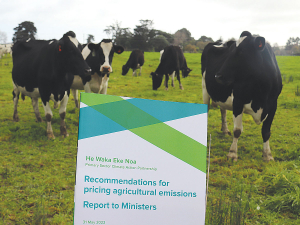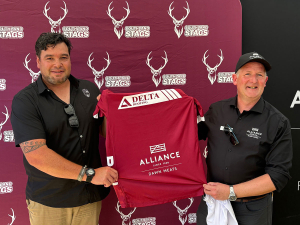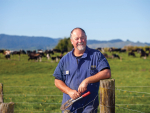OPINION: It's safe to say that He Waka Eke Noa - the industry and government partnership to deal with emissions pricing - is dead in the water.
With time running out and no deal in sight, Parliament will likely rise for the final time on August 31 without a decision on how agriculture will pay for emissions at farm level. National has pulled out its support.
In 2019 the primary sector climate action partnership (HWEN) was established to provide an alternative framework for measuring, managing, and reducing agricultural greenhouse gas emissions.
Initially, it was about working towards all farmers and growers knowing their greenhouse gas emissions numbers, having a written plan to manage greenhouse gas emissions, and being supported to adapt to climate change.
The sector came up with its recommendations, but the Government was in no mood to listen and came out with its own consultation document. Sadly, the goodwill that existed at the launch of HWEN has disappeared.
Farmers remain deeply opposed to the government recommendations. Their greatest concern is, of course, the modelled impacts, which show a reduction in 'net revenue' of between 18 and 24% for sheep and beef, and 6 to 7% for dairy.
In terms of output: it shows a reduction of between 16 and 20% in sheep meat; beef potentially may go up initially by 8% under a low-cost scenario but then also falls by 16% under high cost; and milksolids reduce by around 5%. What the consultation document hasn't looked at are the impacts on rural and provincial communities.
One cannot cut 20% of the output from a sector without major impacts on various communities. Not only will processing jobs be gone at meatworks, there will be all sorts of flow-on effects in rural servicing sectors. Towns like Wairoa are likely to become ghost towns, communities will be ripped asunder and for what? And those emissions will just be shipped offshore and increased.
HWEN has been all about an industry-developed solution. National supported the Government and sector coming up with a sector-led response.
Sadly, when the sector worked for two years and reached consensus on a plan, the Government torpedoed it.
Now National is accusing the Government of killing HWEN, claiming that it is no longer a bipartisan process.
The clock is ticking down not only to the election, but also to 2025 when agriculture would enter the Emissions Trading Scheme (ETS) if no agreement on an alternative method of pricing is reached. New Zealand needs to address climate change but this mustn't come at the expense of the farming sector.











